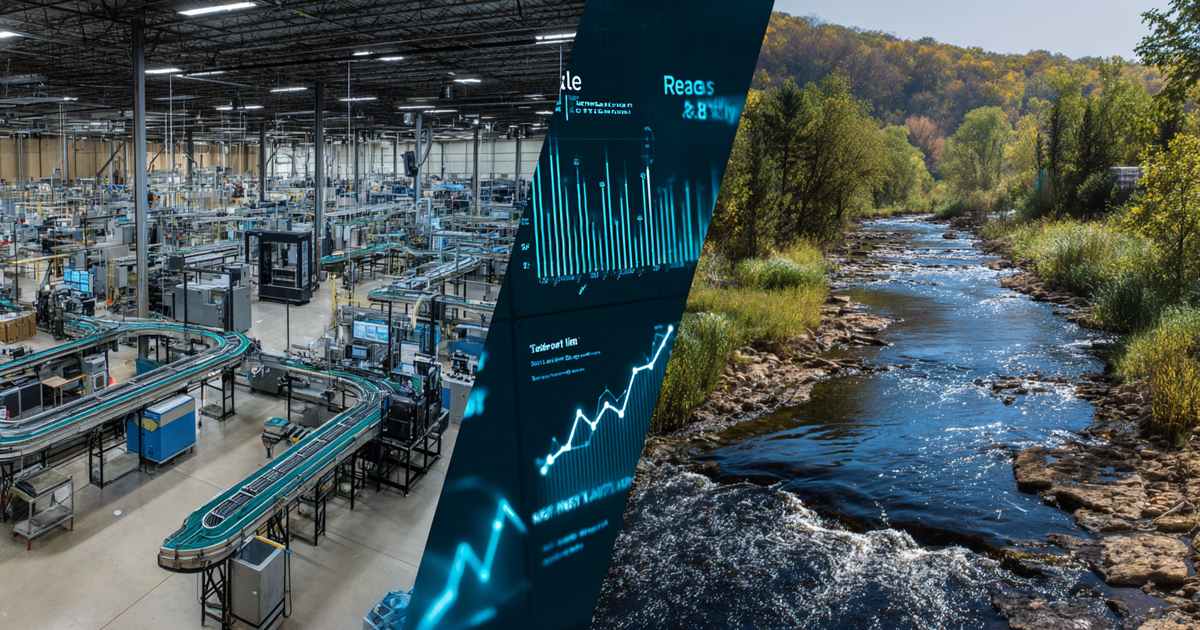Your Hidden Advantage: Why First-Party Data Separates Market Leaders from Everyone Else

Apple blocks third-party tracking. Google phases out cookies. Ad platforms guard their audience data like classified documents.
If you don't own your customer data, you don't control your growth.
The manufacturers who build first-party data systems now will dominate their markets for the next decade. Everyone else will rent access to shrinking audiences at rising prices.
First-Party Data is the New Competitive Advantage
First-party data is information you collect directly from your buyers. Their behaviors. Purchase patterns. Engagement history. CRM stages.
It's accurate, privacy-compliant, and permanent. As third-party cookies disappear and platform targeting narrows, first-party data becomes the only reliable signal for finding and converting new customers.
Some companies don't realize what they're sitting on. Other's aren't collecting the data in the right way.
You can't just add some hidden fields on your forms anymore. Apple, Safari, Brave and other tech blocks that old school method.
There are really four key barrriers to collecting clean first party data and sending it to your CRM and the ad platforms. We have a solutions for all four of those issues.
What Counts as First-Party Data
Form submissions and quote requests. Chat transcripts and call recordings. CRM progression from Lead to Qualified to Quote Sent to Deal Won. Purchase history and repeat order patterns. Distributor interactions and dealer feedback.
Every data point is a signal that can teach ad algorithms who your best customers are and how to find more of them.
But only if you have systems in place to keep that data alive across long sales cycles.
How to Turn CRM Data Into an Optimization Engine
Most manufacturers have goldmines of customer data trapped in disconnected systems. M2CO systematically organizes it.
Building a first-party data advantage starts with clean, accurate signals from day one.
We tag every visitor with UTM parameters and click IDs at first touch. Centralize everything in your CRM as the single source of truth. Map revenue milestones across your entire pipeline. Push verified events back to Google and Meta through API.
Your CRM stops being a digital filing cabinet. It becomes the optimization engine that powers smarter targeting and better business decisions.
When Algorithms Learn From Revenue Instead of Clicks
Feed CRM-verified events to ad platforms and algorithms learn what "profitable customer" actually looks like for your business. Not generic industry assumptions. Not users who scroll halfway down your page. Your buyers.
One of our Industrial Manufacturing clients doubled qualified quote volume in 12 months by optimizing campaigns around verified CRM milestones instead of top-of-funnel leads.
They stopped chasing clicks. Together, we started engineering revenue.
Why Privacy Regulations Favor First-Party Data
You control how data gets collected and used. Customers opt in knowingly. Privacy laws favor first-party over third-party data. Platform algorithms prefer verified first-party signals over third-party inference.
And the old ways of collecting this data no longer work. But we have a unique 4 stage system that let's our customers collect all the data they want, ethically and legally.
And our system is your advantage.
Own Your Data, Own Your Market
Most agencies optimize for impressions and clicks because that's what they can measure without doing the hard work.
Manufacturers who master first-party data build advantages competitors can't rent or replicate. Better targeting that finds qualified buyers faster. Lower acquisition costs through precision. Market intelligence no one else has access to. Independence from platform policy changes.
You're not just running better ads. You're building a proprietary growth engine that compounds over time.
See how M2CO transforms first-party data into measurable competitive advantage.
Related Resources
Learn More About the Future of Digital Marketing
The future belongs to those who build it. Discover how to engineer marketing systems that perform as precisely as your production line.




